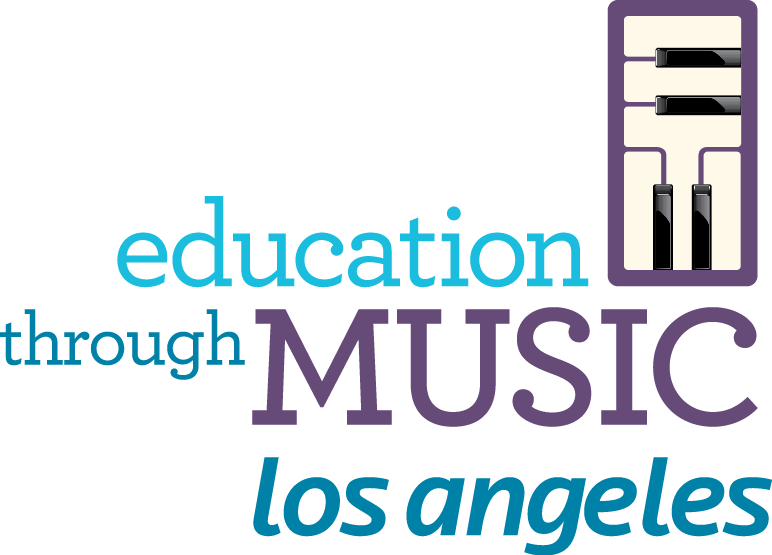Music Technology Spotlight with Damon, ETM-LA Instructional Supervisor
“[Music technology] skills facilitate self-discovery, which unleashes neurons in the brain that induce creativity — a key component of problem-solving.“
 How many ETM-LA partner schools have music technology programs, and what do they involve? What do the students learn in these programs?
How many ETM-LA partner schools have music technology programs, and what do they involve? What do the students learn in these programs?
To date, six ETM-LA partner schools have music tech programs taught by our teachers. Students learn the basics of how digital audio workstations (DAWs) like Soundtrap and Garageband work. Then they receive hands-on training on how to produce and arrange music by using loops and performing live tracks. I’ve seen some of their final projects presented at virtual school performances.
How do the students feel about using music technology in the classroom? How have you seen them respond?
I’ve seen mixed responses. Music production is brand new for many of our students. The learning process is two-fold. First, becoming familiar with a new application, and then practice creating music with it. Some students jump in with both feet and even spend time outside of class using Soundtrap. Others need more encouragement to work on the application.
Why is learning music technology beneficial for students?
Music technology is beneficial because it is the primary way music is recorded, composed, and published today. Whether you aspire to be a professional composer, write your own songs as a hobby, or join a community chorus, you will need experience with DAWs and notation software.
How do these skills help them in the future?
Almost every activity in life is technology-based, which is constantly changing. Whether relaxing at home or thriving in your career, confidence to learn new applications is required to stay current with technology’s rapid pace. Learning music tech skills in school supports student confidence and interaction with technology in general. But an added benefit is that these skills facilitate self-discovery which unleashes neurons in the brain that induce creativity — a key component of problem-solving.
How has music technology supported your own musical creativity?
It started in the early ’90s for me when DAWs were built into synthesizers as an all-in-one workstation. This was where I honed my skills before DAWs became software-based. No longer did you need live string players, horn players, or drummers to record a piece. Most of us couldn’t afford to hire them, never mind locate them. Through those early experiences, I discovered I could write songs, arrange music, produce albums, and create accompaniment tracks for my students. All the above I still do to this day.
How does it feel to know that your Soundtrap tutorial has over 30,000 views?
Humbling. About a year ago, ETM-LA teachers and Instructional Supervisors were frantically making instructional videos to keep music education going due to the pandemic. I doubt any of us were thinking about YouTube views at the time!
What kind of feedback have you received from the video?
I’ve read a few comments. Lots of kind words expressing how helpful the tutorial was. I was even contacted by a former colleague in Boston who said she was looking for a way to introduce her 6th graders to Soundtrap and found my video.





